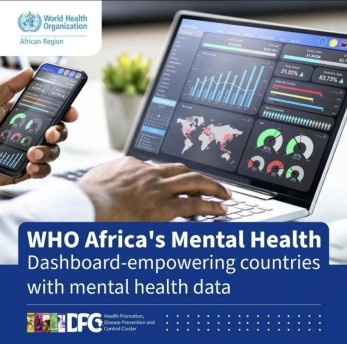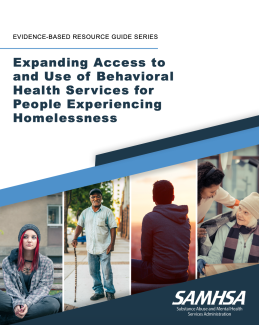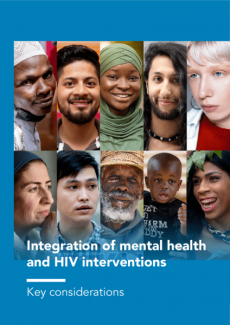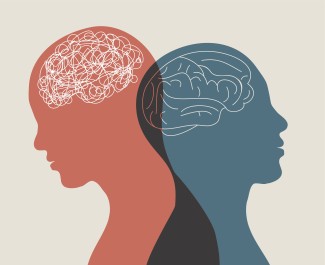
Cerca
ITTC South Africa Online (Live) Motivational Interviewing Training 4 CPD Points
This live training on Motivational Interviewing takes place weekly on Thursdays from 10am till 11am SAST on the following dates: 9, 16, 23 & 30 March 2023.
Motivational Interviewing is a best-evidence approach for tackling harmful...
La relazione tra il pesante consumo episodico di alcolismo dei padri e il coinvolgimento paterno in cinque paesi dell'Asia-Pacifico: una meta-analisi dei dati dei singoli partecipanti
Astratto
Sfondo
Questo studio mira ad aumentare la comprensione della relazione tra il bere episodico pesante (HED) e il coinvolgimento dei padri nella genitorialità in cinque paesi. Viene anche studiato il potenziale effetto moderatore...
A randomized controlled trial of an intervention to reduce stigma toward people with opioid use disorder among primary care clinicians
Abstract
Background
Many primary care clinicians (PCCs) hold stigma toward people with opioid use disorder (OUD), which may be a barrier to care. Few interventions exist to address PCC stigma toward people with OUD. This study examined...
The Prevalence of Symptomatology and Risk Factors in Mental Health in Mexico: The 2016–17 ENCODAT Cohort
Abstract
There is little recent information about the prevalence of symptomatology of mental health disorders in representative population samples in Mexico. To determine the prevalence of mental health symptoms in Mexico and its...
Il gamma idrossibutirrato (GHB) come nuova tempesta per i professionisti della salute mentale e delle dipendenze: approfondimenti dai paesi in via di sviluppo
Risultati sull'uso di sostanze per adulti appartenenti a minoranze sessuali e di genere con una storia di esperienze infantili avverse: una revisione dell'ambito
Astratto
Scopo
Gli impatti delle esperienze infantili avverse (ACE) sulla salute comportamentale, mentale e fisica sono stati ampiamente studiati. Pertanto, è fondamentale sintetizzare i loro effetti quantificati, specialmente all'interno...
Community mental health funding, stakeholder engagement and outcomes: a realist synthesis
Abstract
Mental health services continues to be a high priority for healthcare and social service systems. Funding structures within community mental health settings have shown to impact service providers’ behaviour and practices...
Nature and Course of Clinician and Self-Rated Depressive Features in Persons with Alcohol Use Disorders: A Preliminary Prospective Study among Men Seeking Treatment
INTRODUCTION: The trajectory and nature of depression in patients with alcohol use disorder as they enter treatment needs to be understood better. This study assessed the nature and course of depressive features among male patients with...
Epidemiological Study of Suicidal Ideation and Suicidal Behaviour Among Patients with Substance Use Disorders in a Rehabilitation and Treatment Centre for Addiction in Dubai
The Power of Resilience
Expanding Access to and Use of Behavioural Health Services for People At Risk for or Experiencing Homelessness
This guide highlights strategies for behavioural health and housing providers to conduct outreach and engage with individuals experiencing homelessness, initiate use of behavioural health treatment as they wait to receive stable housing and...
Registration Open: NAADAC's Assessment, Diagnosis, and Treatment of Co-occurring Disorders & SUD Specialty Online Training Series
NAADAC's Assessment, Diagnosis, and Treatment of Co-occurring Disorders & SUD Specialty Online Training Series is designed for helping professionals who are dedicated to learning about co-occurring disorders in the field of addiction...
Resilience in Leadership: Key Behaviors for Self-Care and Caring for Others
Key considerations to integrate HIV and mental health interventions
A new publication by UNAIDS and the World Health Organization (WHO) emphasizes the importance of integrating HIV and mental health services and other interventions, including linkages to social protection services, for people living with...
L'editing epigenomico mirato migliora l'ansia degli adulti e il bere eccessivo dopo l'esposizione all'alcol adolescenziale
Astratto
Il binge drinking adolescenziale è un importante fattore di rischio per i disturbi psichiatrici più tardi nella vita, incluso il disturbo da uso di alcol. L'esposizione adolescenziale all'alcol induce la riprogrammazione...
"La situazione della salute mentale, la violenza contro le donne nel contesto della pandemia post-COVID19" progressi, sfide e sfide
Evento della Giornata mondiale contro l'AIDS 2022: sfide e prospettive dalla pratica del trattamento SUD
In riconoscimento della Giornata Mondiale contro l'AIDS, ISSUP Italia desidera invitarvi a partecipare al loro prossimo webinar.
Prima presentazione: Le sfide post COVID-19 AIDS
Verranno descritte le caratteristiche dell'infezione da...
Webinar bimestrale: ISSUP Nigeria Knowledge Update Series (quindicesima sessione)
Uso di sostanze e senzatetto
Questa ricerca ha esplorato i cambiamenti nell'uso di tabacco, alcol e droghe illecite da parte delle persone senza fissa dimora nel Regno Unito. In particolare, i ricercatori hanno esaminato le seguenti domande:
- Quali sono le...
Mental Health and Substance Use: Reading List
Mental health and substance use issues are commonly linked, and it is important that practitioners are skilled and knowledgeable in identifying and working with the potential challenges an individual may be facing. For World Mental Health...
Share the Knowledge: ISSUP members can post in the Knowledge Share – Sign in or become a member





